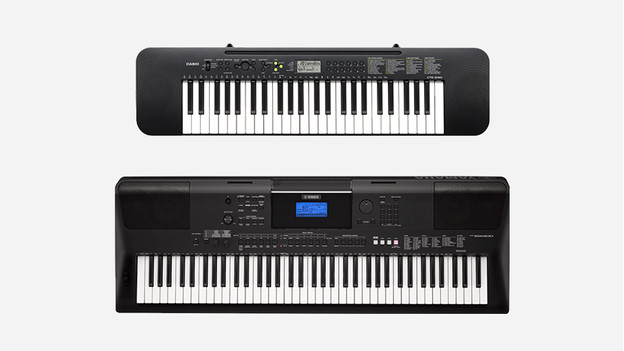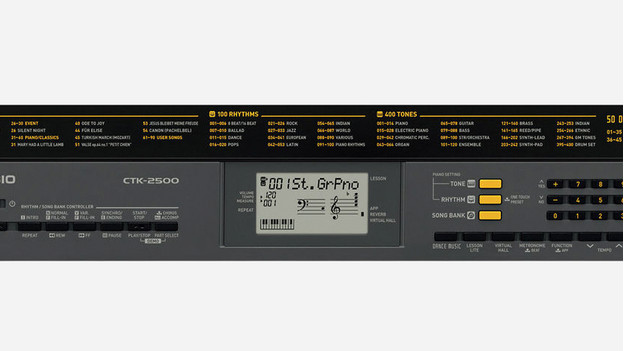
Advice on electric keyboards
1. What exactly is a keyboard?
The keyboard was developed in the 80s because an organ takes up so much space at home. A keyboard has built-in speakers and many voices and rhythms to make music. For example, choose a saxophone or guitar voice and play a melody with your right hand. Make rhythms by playing drums with your left hand. These provide a continuous backing track in different styles and genres. You can also play without a backing rhythm, so you can use the whole keyboard as a traditional piano.
2. How many keys do you need?

Keyboards are available with a different number of keys or octaves. The most common are 61 keys (5 octaves) and 76 keys (6 octaves).
-
61 keys (5 octaves). 61 (velocity sensitive) keys are often the minimum requirement for keyboard lessons. This gives you plenty of room to play with 2 hands.
-
76 keys (6 octaves). Verier piano compositions sometimes use more octaves than a 61-key keyboard offers. This is recommended for more advanced players.
Smaller sizes are often used with a computer (provided the keyboard has a MIDI or USB connection). Smaller keyboards are also suitable for small children.
3. Do you want to learn to play keyboard?

Learning to play keyboard is fun, but not easy for many people. To help you with this, some keyboards are equipped with luminous keys or with built-in lesson modules.
-
Luminous keys. Keyboards with luminous keys have built-in songs that light up the keys before you have to press them. This allows you to easily and playfully play keyboard games. Often the built-in songs are also present in different levels so that your keyboard can slowly but surely make you a professional musician.
-
Built-in teaching modules. Thanks to built-in lesson modules, different facets of playing are highlighted. Think of reading notes, playing chords, timing of touch, different music parts of a song, etc. With these learning modules learning to play is a breeze.
4. Are you an advanced player?
Foot pedals
Some keyboards have connectors for pedals. With a sustain pedal, you can hold tones for longer and with the expression pedals you can control the volume or timbre of certain tones.
Effects
With a pitch wheel, you can change the pitch of your tone. With the modulation wheel, you can adjust things like the volume or timbre. You can often set up the modulation wheel via MIDI. Some keyboards also have effects like Reverb, Chorus, Flanger, Delay, or Harmony.
Polyphony
With polyphony, we mean the number of tones that can play at the same time at most. Keep in mind that you often hold many more tones with a sustain pedal than the 10 you press with your fingers.
Recording
If a keyboard has recording options, you can store your songs internally or externally via an SD card or USB flash drive. Tome keyboard has an internal mixer, so you can play different parts separately and combine them later.
5. Finish your purchase.
Most keyboard come without stand or seat. Do you want to play right away? Don't forget the essential accessories:
6. Didn't find what you were looking for?
A keyboard offers a lot of options, but there might be a different keyboard instrument that fits your needs better. Digital pianos always have 88 weighted keys or semi-weighted keys for an authentic piano feeling. MIDI keyboards are often used together with a computer and they often have controller buttons like faders and dials. A synthesizer is the voice specialist of the keyboard instruments. You can design your own voice and make it sound exactly like you want.


